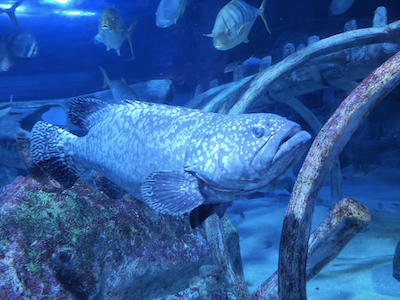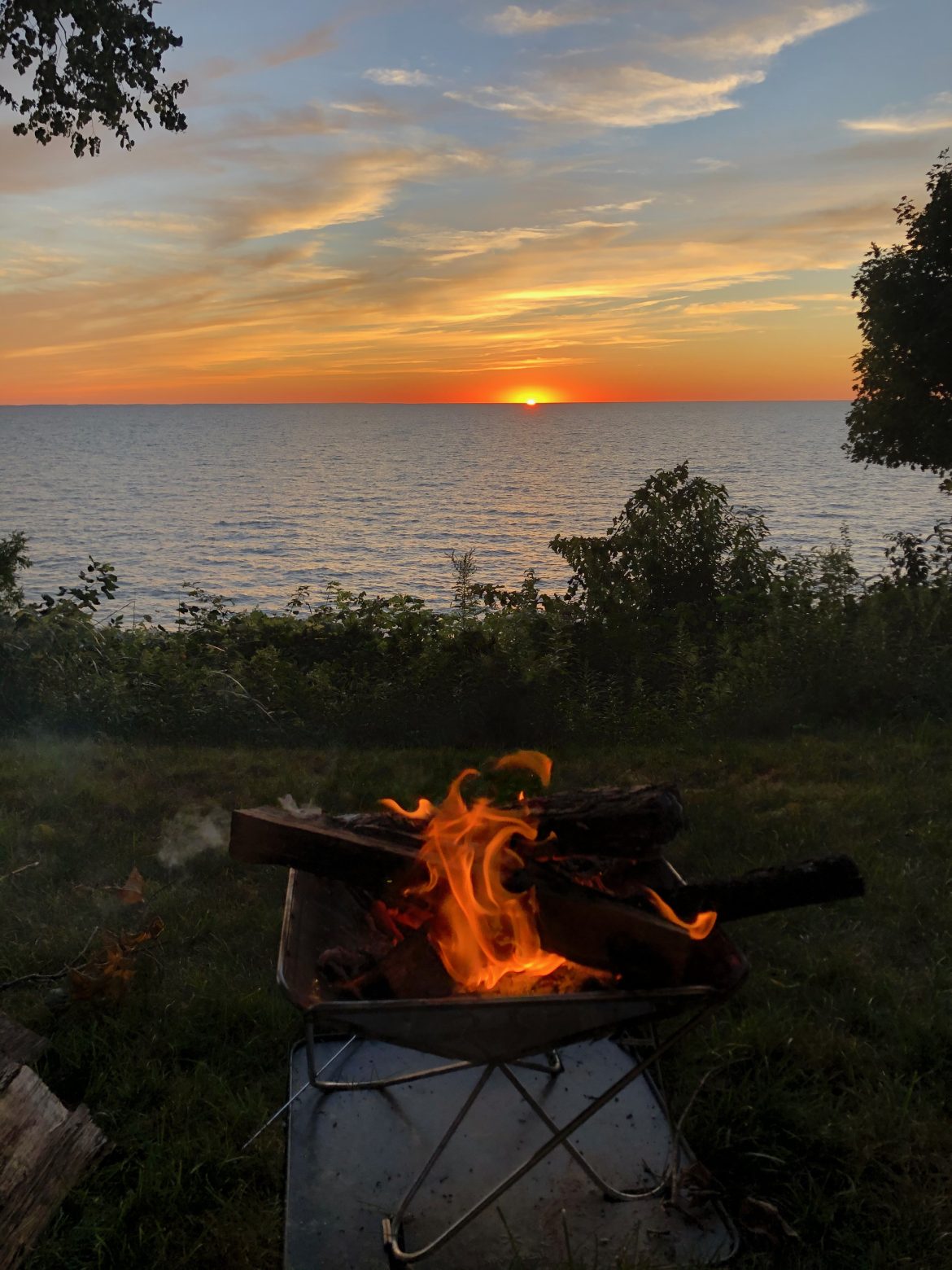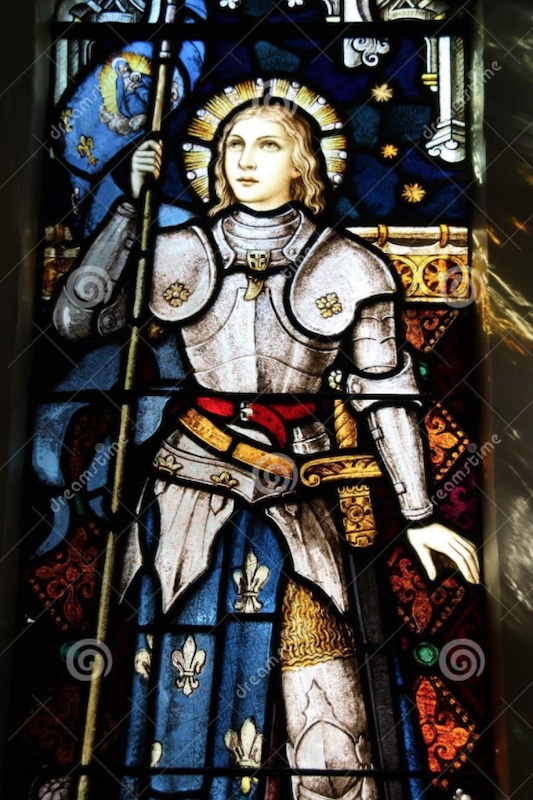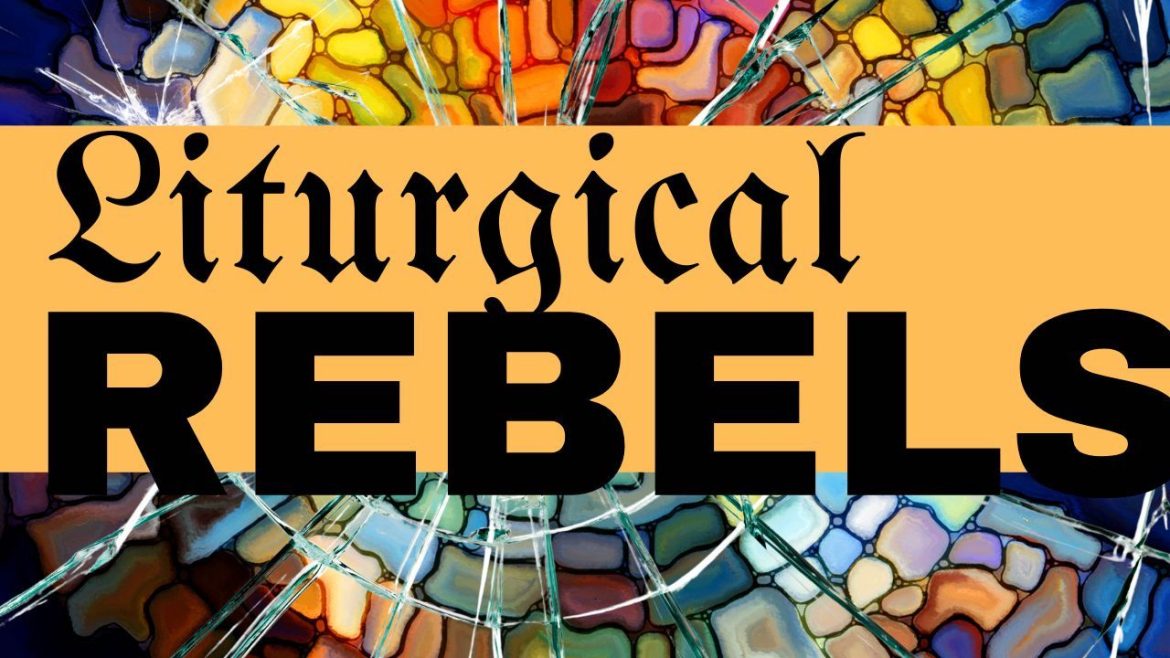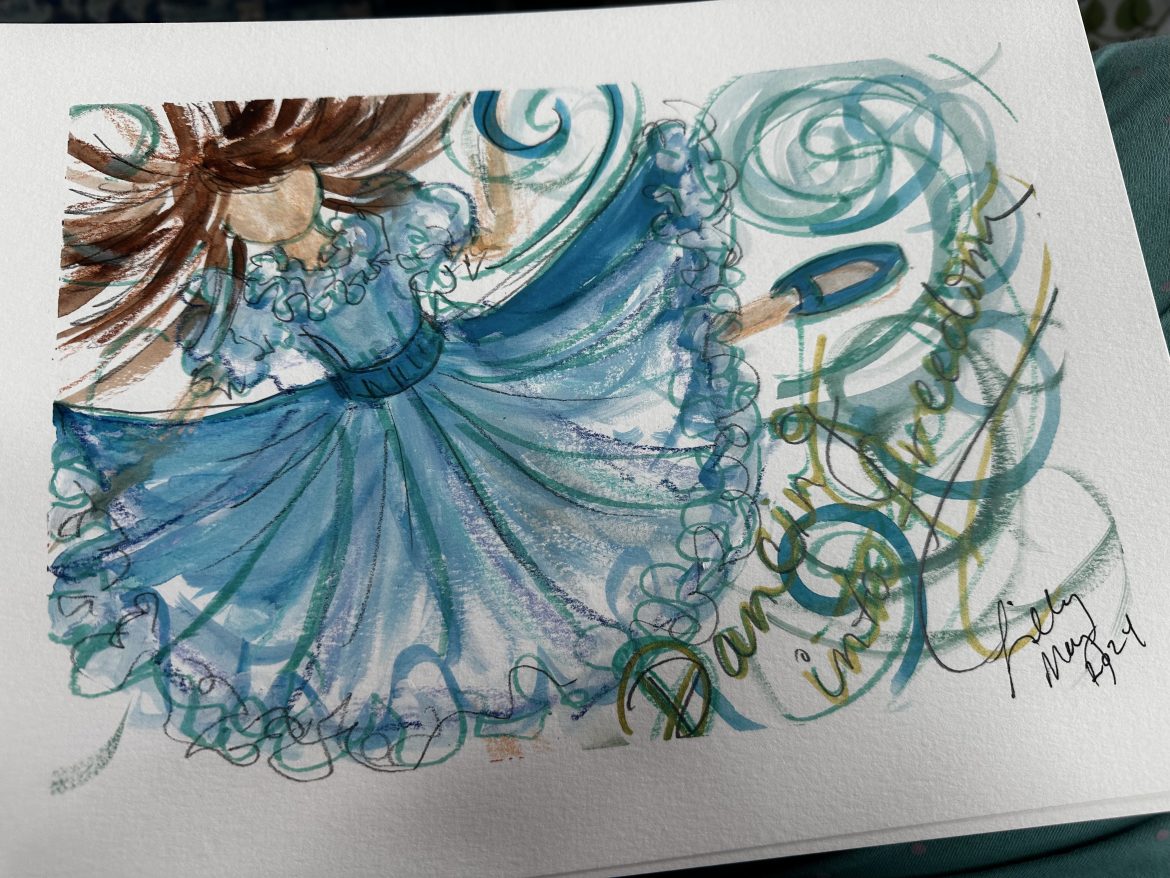by June Friesen
Recently I have been spending time studying and reading about Jonah? This has also been
during the time that we have moved to a new residence. Sometimes it is interesting how
God times our life experiences with different passages of Scripture. And during this time
the book of Jonah was on the radar for my sermon series. Jonah was a prophet for God to
the people of Israel. We do not know much about the work he did before or after the book
of Jonah but there definitely is some lessons one can learn for our own lives even today. A
prophet is defined in the Oxford dictionary as:
‘a person regarded as an inspired teacher or proclaimer of the will of God’.
We know that there were many prophets in the Old Testament who had messages to
deliver and work to do for the people of God. Some of them, Jonah was one, also were
asked to deliver messages to people around the Israelite nation. Many if not all of us have
heard the story of Jonah at least once in our lifetime. For some of us it may have had a
greater impact than for others. As I was reading and studying about Jonah the last couple
of weeks for some reason I thought of this phrase – ‘Jonah lost his cable connection’ – his
cable connection being his close relationship with God. Because of that lost connection he
ended up in the bottom of a sea – AND – it was in the belly of a large fish that he found the
cable/GPS connection once again.
Jonah 1 – 2
1-2 One day long ago, GOD’s Word came to Jonah, Amittai’s son: “Up on your feet and
on your way to the big city of Nineveh! Preach to them. They’re in a bad way and I can’t
ignore it any longer.”
3 But Jonah got up and went the other direction to Tarshish, running away from GOD. He
went down to the port of Joppa and found a ship headed for Tarshish. He paid the fare
and went on board, joining those going to Tarshish—as far away from GOD as he could
get.
4-6 But GOD sent a huge storm at sea, the waves towering.
The ship was about to break into pieces. The sailors were terrified. They called out in
desperation to their gods. They threw everything they were carrying overboard to lighten
the ship. Meanwhile, Jonah had gone down into the hold of the ship to take a nap. He was
sound asleep. The captain came to him and said, “What’s this? Sleeping! Get up! Pray to
your god! Maybe your god will see we’re in trouble and rescue us.”
7 Then the sailors said to one another, “Let’s get to the bottom of this. Let’s draw straws to
identify the culprit on this ship who’s responsible for this disaster.”
So they drew straws. Jonah got the short straw.
8 Then they grilled him: “Confess. Why this disaster? What is your work? Where do you
come from? What country? What family?”
9 He told them, “I’m a Hebrew. I worship GOD, the God of heaven who made sea and
land.”
10 At that, the men were frightened, really frightened, and said, “What on earth have you
done!” As Jonah talked, the sailors realized that he was running away from GOD.
11 They said to him, “What are we going to do with you—to get rid of this storm?” By this
time the sea was wild, totally out of control.
12 Jonah said, “Throw me overboard, into the sea. Then the storm will stop. It’s all my
fault. I’m the cause of the storm. Get rid of me and you’ll get rid of the storm.”
13 But no. The men tried rowing back to shore. They made no headway. The storm only got
worse and worse, wild and raging.
14 Then they prayed to GOD, “O GOD! Don’t let us drown because of this man’s life, and
don’t blame us for his death. You are GOD. Do what you think is best.”
15 They took Jonah and threw him overboard. Immediately the sea was quieted down.
16 The sailors were impressed, no longer terrified by the sea, but in awe of GOD. They
worshiped GOD, offered a sacrifice, and made vows.
17 Then GOD assigned a huge fish to swallow Jonah. Jonah was in the fish’s belly three days
and nights.
Then Jonah prayed to his God from the belly of the fish.
He prayed:
“In trouble, deep trouble, I prayed to GOD.
He answered me.
From the belly of the grave I cried, ‘Help!’
You heard my cry.
You threw me into ocean’s depths, into a watery grave,
With ocean waves, ocean breakers crashing over me.
I said, ‘I’ve been thrown away, thrown out, out of your sight.
I’ll never again lay eyes on your Holy Temple.’
Ocean gripped me by the throat. The ancient Abyss grabbed me and held tight.
My head was all tangled in seaweed at the bottom of the sea where the mountains take
root. I was as far down as a body can go, and the gates were slamming shut behind me
forever—
Yet you pulled me up from that grave alive, O GOD, my God!
When my life was slipping away, I remembered GOD,
And my prayer got through to you, made it all the way to your Holy Temple.
Those who worship hollow gods, god-frauds, walk away from their only true love.
But I’m worshiping you, GOD, calling out in thanksgiving!
And I’ll do what I promised I’d do!
Salvation belongs to GOD!”
10 Then GOD spoke to the fish, and it vomited up Jonah on the seashore.
I know that was a large portion of Scripture however it tells the story so perfectly. We see
in the beginning verses that Jonah just cut off communication with God. Then he made a
run for it. He did not even want to be in the land where he knew God was in charge for the
most part. He would go to a foreign country and no one would ever know what happened
to him. When the storm came at sea he figured out that it was his fault and admitted it to
the sailors. However, he in no way acknowledged that God really had anything to do with
the storm to the sailors. When he drew the short straw he did not want to deal with it –
well he did not want to deal with God. It would be better to just end his life – be thrown
overboard and die – ….. But just like God is known to do He got that GPS system up and
working even in the bottom of the ocean as well as in the belly of a big fish. WHOA! And
not only that, Jonah got the message from God loud and clear the second time – loud and
clear enough that this time he got up and went as soon as he was on dry land again.
Jonah’s GPS system was up and functioning now.
How is it with you and I and our connection with God?
Maybe the words from Psalm 40 will resonate with you.
Psalm 40:3-5
40 1-3 I waited and waited and waited for GOD.
At last he looked; finally he listened.
He lifted me out of the ditch, pulled me from deep mud.
He stood me up on a solid rock to make sure I wouldn’t slip.
He taught me how to sing the latest God-song, a praise-song to our God.
More and more people are seeing this: they enter the mystery,
abandoning themselves to GOD.
4-5 Blessed are you who give yourselves over to GOD, turn your backs on the world’s “sure
thing,” ignore what the world worships;
The world’s a huge stockpile of GOD-wonders and God-thoughts.
Nothing and no one compares to you!
I start talking about you, telling what I know, and quickly run out of words.
Neither numbers nor words account for you.
Sometimes in our lives these words can be exactly what we feel. We feel as if God has been
ignoring us, not listening to the prayers we are praying, not providing for us as we think
He should, etc. There have been times in my life when I have indeed felt as if the words
that I was praying were indeed just words and nothing more. At times I have felt as if I
was the only one hearing the words I was praying – or if there were people around –
maybe they were hearing them but there sure were no answers coming to my prayer(s).
For some reason it just seems as if one’s connection with God is failing. Have you ever had
a time that you are waiting for something or for someone to arrive only to find out that the
message you may have sent was either not sent and/or not received. I have had that
happen – for some reason I forgot to push the send button or put a stamp on a letter –
sometimes I think I also pray for something and give little thought to what God may think
about the prayer. I have even heard and probably have done it myself – demand that God
do something.
And then there are other times when we feel God’s presence around us as we are praying –
we feel Him at work within us as we are praying – we may even see Him working around
us even in the midst of our praying. Can I explain or give a reason for any one of the
situations? Very likely not – or at least not until later.
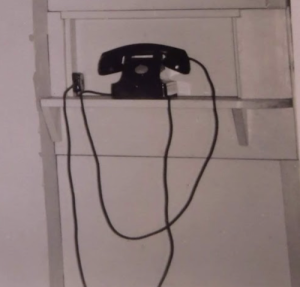
Lord: please help me keep the cable connection with You plugged in. Help me to
remember to inspect it from time to time to make sure You and I have clear
communication. Help me hear when You call to me – but not only hear but respond by
listening and being willing to answer You. Help me to also carry any messages You may
give me for others so they will not miss out on Your call to them. Thank You God for the
opportunity to receive calls from You but even more thank You for also answering any
time and every time that I or anyone else calls You. In Jesus Name, Amen.
Photos property of June Friesen. The last photo was taken by my mother.
Scripture from The Message translation.
I talk about REST a lot because I am so bad at it! I have been sick with some crud for the past 10 days. I thankfully don’t get sick very much but this thing got me. I really needed to rest but I fought it almost everyday. In the midst of this, my dad is in the hospital after emergency abdominal surgery. Dad will be 95 in July. Dad doesn’t do rest well either, but in the last year as he’s slowed down due to aging, I reminded him that Jesus took naps and that REST is HOLY! This is my favorite hashtag! #RESTisHOLY
We were given the greatest gift by God, the gift of REST.
Which brings me to the new month and new season we are entering…SUMMER here in the Western Hemisphere. Sadly here in America, we often get busier in the summer not less busy! Too often REST isn’t a part of our summer practice or on our summer TO LISTS. My dad was a great summer to do list guy, but the list he usually gave us kids was enough for a few years, not a few weeks in summer. He had us painting fences and bushhogging the fields when we’d have rather been sleeping late and resting.
Did you know that there are actually SEVEN kinds of rest that we all need? Check out the article here.
Saundra Dalton-Smith MD has a great ted talk and book about these SEVEN:
- Physical rest.
- Mental rest.
- Emotional rest.
- Sensory rest.
- Creative rest.
- Social rest.
- Spiritual rest.
As you read this list which one jumps out at you as something you need? Maybe you need more than one!
When you think of Summer, what comes to mind? Is REST on your radar? How can REST be a part of your next season?
What are the sights, sounds, smells, tastes of summer? What are the memories of summer that make you smile? Spend time thanking God for these things!
What do you wish your summer could look like? What would a perfect summer be for you?
Where would you like your relationship with Jesus to be by September? Take time to pray and journal about this.
What if you and your community had a plan to intentionally grow closer to Jesus this summer?
What if you could open a gift each week… like the gift of rest, or the gift of play, or the gift of gratitude?
We created the Gift of a Sacred Summer just for you!
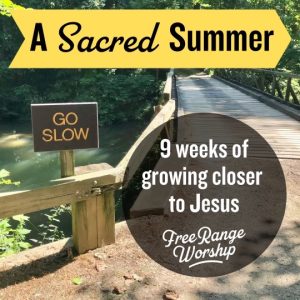
sacred summer
Open the gifts this Summer!
It’s a downloadable kit which features a 5 minute and 15 minute practice for each Gift of Summer, going deeper activities, and journaling questions that you can do on your own or with your family and friends. There are coloring sheets to use with each gift, liturgies, discussion questions, and social media graphics for churches and youth groups to use.
THE GIFTS are: Silence, Rest, Gratitude, Nature, Justice, Love, Play, Create and a bonus week on Grief to help us all process this past year.
You can do a few weeks or all of them! They aren’t in a certain order, so you can create what works for you and your family/church’s schedule. My good friends and FreerangeWorship teammates, Joanna Cummings and Edward Goode, both pastors, helped write the gifts and we are all excited to see how people “open” them this summer!
So consider how you want to draw closer to Jesus in the weeks ahead… What are the things that help you connect with God? What are the distractions that you want to avoid? What supplies do you need? A new journal perhaps? Or to make a comfy spot to pray in? Talk to Jesus about this. Talk to your family, small group, or housemates about what might be possible this summer. And whatever you choose, choose to REST in the love of JESUS. He is holding you close and inviting you to REST IN HIM and WITH HIM!
And check out THE GIFT OF A SACRED SUMMER and our RETREAT!
Make time for Jesus this summer!
Walk with me and work with me—watch how I do it. Learn the unforced rhythms of grace.I won’t lay anything heavy or ill-fitting on you.Keep company with me and you’ll learn to live freely and lightly.” Jesus. Matthew 11: 28-30 The Message
©lillylewin and freerangeworship
by June Friesen
Recently we have moved from one residence to another. This past week I was asked a question by one of my visitors as I was showing them my new place. I was talking about the changes and remodeling my contractor was going to do beginning this week. The question that I was asked was: ‘Why did you move in before the repairs were made?’ I am not even sure how I answered the question at that moment but it has caused me to consider this question: ‘Why does God choose to move into my life/your life at our invitation instead of making us clean-up/out the sin first?’ I remember a verse that I learned as a child found in Revelation 3:20 – “Look at me. I stand at the door. I knock. If you hear me call and open the door, I’ll come right in and sit down to supper with you.” So many times I heard that verse quoted by preachers and teachers encouraging anyone/everyone that this invitation was for them at the very moment it was being spoken. God was/is wanting to have fellowship with anyone at the very moment of hearing this word.
So why would God want to even entertain the idea of being a part of someone’s life before they have gotten rid of all the sinful/bad/evil/not so good things that were/are a part of their life? I believe that one of the things that Jesus revealed to us in His ministry here on this earth was that anyone could follow in the crowd, anyone could meet Him along the pathway and anyone could even interrupt Him as He was ministering. As I was typing this last sentence time after time was coming to my recall of people coming to Jesus before they had changed their lifestyle. There were even times when the people around Jesus were sure that He would not talk to someone, or He would not heal someone or ‘you fill in the blank.’
Luke 5: 17 -26
17 One day as he was teaching, Pharisees and religion teachers were sitting around. They had come from nearly every village in Galilee and Judea, even as far away as Jerusalem, to be there. The healing power of God was on him. 18-20 Some men arrived carrying a paraplegic on a stretcher. They were looking for a way to get into the house and set him before Jesus. When they couldn’t find a way in because of the crowd, they went up on the roof, removed some tiles, and let him down in the middle of everyone, right in front of Jesus. Impressed by their bold belief, he said, “Friend, I forgive your sins.” 21 That set the religion scholars and Pharisees buzzing. “Who does he think he is? That’s blasphemous talk! God and only God can forgive sins.” 22-26 Jesus knew exactly what they were thinking and said, “Why all this gossipy whispering? Which is simpler: to say ‘I forgive your sins,’ or to say ‘Get up and start walking’? Well, just so it’s clear that I’m the Son of Man and authorized to do either, or both. . . .” He now spoke directly to the paraplegic: “Get up. Take your bedroll and go home.” Without a moment’s hesitation, he did it—got up, took his blanket, and left for home, giving glory to God all the way. The people rubbed their eyes, stunned—and then also gave glory to God. Awestruck, they said, “We’ve never seen anything like that!”
The religious leaders had been following Jesus to see if they could somehow figure Him out – or to see if they could trap Him in some way and get people to think/agree with them that Jesus was a heretic or imposter or at least that He ‘was not’ Who He said He was – ‘the Son of God’. He just did not do things the way they were supposed to be done. So what may have been some of the things the religious leaders thought Jesus should have done – or at least done before He chose to heal someone? When we read the Scriptures we find that one of the reasons for illness was sin. The people often thought it was something that the parents or someone in the family had or had not done; or it could have been that the person themselves had done or not done something. Their belief was that illness and/or birth defects were a result of sin and while that is in essence true it was not necessarily that it was the family that was in the wrong. Sin, when it entered the world with Adam and Eve, came with a whole host of consequences for the human race and none of them were good in any way. Sin affects all of humanity and while it may seem that some people get more than their share of struggles and troubles God is well aware of what is happening to each individual.
In the story here in Luke, first of all the friends of this handicapped man were convinced that Jesus could help their friend. Second, I do not believe that the man himself resisted or even could resist what his friends believed for him. He had no way to get up and run or hide – he was captive to their idea. Thirdly, they did not try to pretend that they knew the outcome 100% but they were definitely willing to move forward believing that there was a better way for their friend. And then – and then – – – what in the world – not anyone in the crowd was willing to move an inch or make any room for them to get their friend into the room where Jesus was. Others had no care for their friend, who they did not know, and who they immediately judged as one who was not worthy of Jesus attention much less of Jesus healing. After all, they got there first so these guys with their problem friend just needed to go. Go indeed the friends did – but that was only the beginning of this story.
So, the friends of this man decided if the crowd was not going to be polite – well maybe they could try another avenue. And I expect that the avenue that they used got the attention of the crowd in even a greater way – and I expect that there was some ‘What’ – Now what’ – ‘Why’ etc. being uttered. I expect there were also those who were trying to stop this whole fiasco too. Did these people have no respect at all for Jesus and the group of people that he was meeting with – and did they have no respect for the fact that they were ruining someone’s house? All for the opportunity for a man to be given the opportunity to be made new – to be healed. This man’s friends saw the result that they believed Jesus could produce as opposed to being an intrusion into the situation. And for them the need needed attention now – not an appointment for a later date. Their friend needed an emergency appointment with Jesus and they were all about making it happen.
And so this man came ‘lying on a mat right through the ceiling at Jesus’ feet’. And definitely it caught Jesus’ attention – and he healed the man and allowed him to be on his way. The man was complete, whole, and able to go forward and live a life as everyone else was living from this time forward. But it was all because his friends believed in the finished product of Jesus’ work of miraculous healing. What a great ending – the friends believed that Jesus could heal now – and their friend did not have to wait until Jesus came to his house or town.
What or who in your life needs hope? Hope for a future that can not be completely seen or known. Does one choose to just give the negatives of what is happening in the world around us? Or does one look rather at the opportunities that God is wanting to work in the world? One may say (and I have heard people say it), ‘There is no hope for this country/world/universe.’ Yes my friend, that is a true statement in many respects however Jesus as well as other writers of the Scripture say, ‘Put your hope in God and not in humanity.’ It is about putting one’s hope in the unseen believing that what is promised can be accomplished and will be accomplished. For me and my new home, I have a contractor in whom I have hope as the photos above show what transformation happened in my previous home. This same contractor will transform this now home into a beautiful home as well. Just as you and I are ready to put our trust and faith in humanity with skills to transform and make things better – God does one better – He takes you and me and anyone else who is willing, sometimes unwilling at first and He transforms us into people filled with love, hope, peace, gentleness and kindness. But I must believe it can happen to me in my life, that it can happen to others and then choose to embrace God and His work in my life as well as others and then – ‘Watch and see how God will transform your life into a beautiful miracle.’ Amen.

 Guidelines for a Personal Retreat – Download
Guidelines for a Personal Retreat – Download
Whether the beginning of a new year or a new season, discerning God’s direction is key. It can be difficult at times to figure out how to accomplish this in our busy lives.
The beginning of summer is a perfect time to embark on discernment and seek God’s direction. I strongly believe that God is in the process of birthing something new and wants us to be a part of that newness. So it is an ideal time to look, listen, and discern. Spiritual retreats are the perfect way to accomplish that.
This booklet is based on the most popular posts about spiritual retreats published on Godspacelight.com over the last few years and provides resources for taking a spiritual retreat either on your own or with a friend or spouse.
Updated with more practices and sections!
from Melissa Kelly
Today Christine and Tom begin their UK adventures. They will be visiting friends and making connections for the next two weeks. Christine is excited to see her friends, Tom wants to hear what good news the churches have to share. I will be keeping things rolling here at Godspace. I am Melissa, the admin for Godspacelight. I do the posts, edit the podcast episodes, send out the product mailings, and in Christine’s absence I will write the newsletters to keep you up to date.
Last week was the week after Pentecost and included Memorial Day weekend here in the States. We put out our 8th episode of Christine’s Liturgical Rebels Podcast on Wednesday. On Thursday we reposted Carol Dixon’s reflections on the Venerable Bede whose faithful service of written scholarship was done almost entirely from his monastery. Yet his work spread throughout Europe and down through the centuries. Lilly Lewin reflected on Pentecost in her Freerange Friday post and encouraged us to accept the invitation to dance with Jesus as part of being filled with the Spirit. On Saturday we posted links to all of the Liturgical Rebels episodes so far, just in case you missed them. And yesterday, in honor of Joan of Arc’s upcoming Saint Day, we re-posted Diane Woodrow’s wonderings about how we would view Joan of Arc today.
That’s it! You’re all caught up on Godspacelight activities.
I wonder what we would have thought of Joan of Arc today even in some of the more crazy charismatic churches. She doesn’t fit the stereotype of prophetic leader. She didn’t have visions of Jesus but of Michael, the archangel, Catherine of the “death by flaming spinning wheel from which the firework known as the Catherine-wheel comes from”, and Margaret who was tortured and murdered because she would not renounce the vow to remain a virginal bride of Christ when a pagan king wanted to marry her. Would we have been more like one source and just say “she claimed to have heard voices in her head”?
I wonder if she had come forward today, a young girl of 16 or so, and said she heard voices of an angel and two martyred women and that she wanted to lead her country to victory, she would be taken to a psychiatric ward? Or, if one of our children said they heard voices, would we tell them to hush and maybe get them checked out for autism? Or, what about ourselves? What would you do, what would I do, if we were sure we could hear voices telling us to do something bold and brave? I wonder if we would just keep quiet and wait for our voices to be “confirmed”.
As I pondered Joan of Arc, Greta Thunberg came in to my head, the teenager who has stepped up to the mark to try to lead the world to another place. I wonder if there were other young people who felt the same but whose parents, teachers, or churches, told them not to be so silly and the whole thing was too big for them. Greta, I believe, has only got as far as she has because her parents didn’t stop her. There is nothing to say what Joan of Arc’s parents thought but it was her relative who was bold enough to take her to a local garrison and from there she made it to the French court.
Joan experienced lots of opposition but preserved because of her total belief that this was what God was telling her through his messengers; Michael, Catherine and Margaret. How often do we hear something, and hear it very clear, and yet when we hit opposition, or lack of support from others, we give up? This doesn’t mean that we should power on through because we think this is what we should do but sometimes, like both Joan and Greta, we need to listen to what we are hearing, listen with our hearts, and keep on keeping on even if it means we lose our reputation, our livelihoods, and in Joan’s case, our lives.
I don’t think Joan cared what other people thought. I don’t think Greta cares much either. This isn’t to say I think either of these young women lack emotion at all. I think they both believe/believed that what they were doing is/was so right that they just can’t/could stop.
From pondering Joan of Arc, and as a result of that Greta Thunberg, my hope is that when I hear a voice or voices telling me to go and do something I won’t hold back whatever opposition I face, or however much it might damage my reputation. But also when I hear of some young person talking about a dream, a vision, voices speaking to them, that will change the world I will be willing to encourage them rather than hinder them.
Our world needs to change to stop it going back to the same pre-covid patterns where those who have stuff and status, fear of losing out to those who do not, and where those who do not have status are treated with disgrace and live in fear of having the little they have taken from them. We need to change and I believe we need younger people to help us with that – with more energy, more determination, more of an innocent belief that things can change.
I would like to be like Joan of Arc’s relative, helping to get someone young person to where they believe they should be, helping and encouraging them to see the change they believe in.
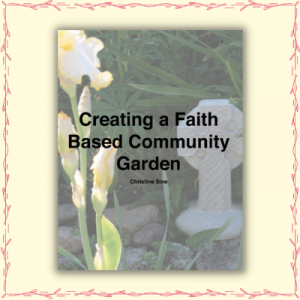 Creating a Faith-Based Community Garden – Download
Creating a Faith-Based Community Garden – Download
Since I wrote To Garden with God, a rich array of resources that connect gardeners to garden techniques and faith principles for gardening, have proliferated. In response, I started to publish several resource lists on my blog each year to supplement the resources in. However, numbers of people have suggested that a single publication would assist their efforts.
This booklet was created in response to this need and like the resource lists that are updated yearly on the blog, it will be updated each year to reflect the new resources and techniques available to help us. This has been updated for 2021. Enjoy!
We’ve done EIGHT episodes of Liturgical Rebels so far!
Episode 1 – Inaugural episode with Christine Sine and Forrest Inslee
Episode 2 – Poetry as Spiritual Practice with Christine Sine and Drew Jackson
Episode 3 – Explore Art with Scott Erickson
Episode 4 – Block prints & Faith journeys with Kreg Yingst
Episode 5 – Curating Worship with Mark Pierson and co-host Lilly Lewin
Episode 6 – Creative Worship with Lilly Lewin
And our two most recent episodes:
Episode 7 – Author & Activist Shane Claiborne
In this conversation, Christine Sine interviews Shane Claiborne, a Christian activist and author, about his journey and his work in advocating for social justice. They discuss topics such as community living, gun violence, the death penalty, and the ongoing conflict in Gaza. Shane shares his experiences and insights, highlighting the importance of love, nonviolence, and solidarity with marginalized communities. The conversation culminates in a discussion about the recent pilgrimage walk and protest at Lockheed Martin, a major weapons contractor.
Episode 8 – Into the Wild with Tony Jones
In this conversation, Tony shares his journey from being a pastor in the Emerging Church Network to finding solace and connection with God in the wilderness. Tony emphasizes the importance of nature in spiritual experiences and how it can be a place to interact with God. He explores the presence of death in life from composting and gardening to hunting. The conversation explores the paradox of valuing animals and of hunting and eating them, the responsibility humans have for the death of animals, and the need for honesty about animal deaths. The conversation concludes with a discussion on mortality and the focus on living the best life in the present.
Little kids love to dance. They move their bodies easily to music. They feel the joy of the music and aren’t afraid to move with it. I have a friend named Anna and her little daughter has learned all the River Dance moves by watching the videos. She started this at 3 and now at 5 is taking lessons in Irish dancing. She is passionate and free! I saw a video on instagram recently of a young toddler watching the music video of Jon Baptist’s “ Freedom.” He was moving with the music. His mom said this was his favorite song! It’s become one of my favorite songs too. It’s helping me relearn to dance! The joy in the music just makes me want to move.
I used to dance. I took ballet when I was in early elementary school. I loved it. There is even an old home movie of me trying to teach my little brother how to dance with me wearing a tutu. But somewhere along the way, I lost that love of dancing I lost how to dance!
I didn’t make it to pointe in ballet so never had toe shoes….If I had, I might have continued to dance. But I have that “not good enough” or “not perfect enough” thing and I tended to stick with things I that weren’t too hard to learn, things that I felt already good at like art.
As I grew up, I got into other hobbies and dance wasn’t one of them. It sadly wasn’t a natural part of me. While I loved listening to music, dance parties weren’t a part of my daily life. Instead, I was singing Broadway tunes in the barn to the cows as I threw down their hay.
When I had young kids, I tried another dance class at a local college. But there I felt out of place and uncorodinated. I’m not sure I even finished the class. My hips definitely lied to me.
Maybe it’s hard for me to dance because I haven’t done a lot of it. I don’t naturally move in that free way that real dancers do. What about you? Are you a dancer? Was dancing a natural part of your life as a kid ?
As an enneagram 7, I am much more in my head than in my body. This year as I’ve started doing strength training, I am learning just how disconnected I am from my body and my breathing. I’m learning how to breathe all over again. I am learning how to pay attention to where I feel emotions in my body and how my muscles all work together. It’s been a very good but rather humbling process.
Breath and Breathing and Dancing are all invitations of the Spirit.
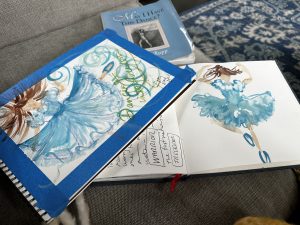
dance 1
Author Joyce Rupp, in her book, MAY I HAVE THIS DANCE, invites us to consider the Invitation of Jesus to dance with Him.
But just when
The old heap of bones seems most dry
And deserted,
A strong Breath of Life
Stirs among the dead.Someone named God
Comes to my fragments
And asks, with twinkling eye:
“May I have this dance?”
“God constantly visits my valley of dry bones and invites me to dance. “ Joyce Rupp
I think we all need to accept the invitation to DANCE with JESUS!
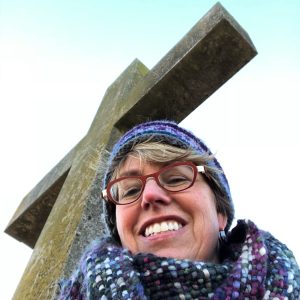
One year at the Abbey of Gethsemani, The Sprit invited me to go dance before God on the Cross hill…I went up the hill and danced with Jesus …and Jesus asked me to leave my shoes as a symbol of leaving behind the old things …Jesus invited me to leave behind my fears and dance freely in the love and grace of the protected one.
More recently I was invited by my friend Katherine to attend an experiential dance class led by Hillary Mcbride and Lisa Gungor. It was a step of faith for me and getting out of my comfort zone. But I decided to accept the invitation of Jesus and went for it!
While I wasn’t as free as some of the folks there to move and dance the entire session…through the dancing and movement that I did do, Jesus met me and showed me some powerful things.
I found myself swaying to the music and holding my arms as if I was holding a baby. I have taught myself and others that we need to be wrapped in God’s love just as Mary wrapped Jesus in swaddling clothes. In this dance experience, Jesus showed me that I needed to be rocked in God’s love as an infant in the arms of LOVE, and know too that I can rock myself and love myself. I backed against a wall as I moved and this reminded me that Jesus has my back….I smiled broadly as I danced up against that WALL OF LOVE.
How do you view dancing with Jesus now?
Did you have any experience dancing in a church or worship setting? Or was dancing illegal?
In 2 Samuel 6, King David Danced before the Lord with all his might!
Ecclesiastes 3:4 reminds us that there is a time to mourn and a time to dance.
And the prophet Jeremiah gives us hope….
Then young women will dance and be glad,
young men and old as well.
I will turn their mourning into gladness;
I will give them comfort and joy instead of sorrow.
Jeremiah 31:13
How do you feel about dancing? What does dancing feel like to you?
Is it easy for you to dance?
Does music bring you to your feet and get you moving?
How does it feel to be invited to dance with Jesus?
Joyce Rupp says “Prayer is a time to dance with our Divine Partner, to let God take the lead, and to enjoy the true delight and source of life that God is for us. “
What if we practice movement/dance as an act of prayer? What would that be like for you? What music would you put on to dance to? Would you be inside or outside for you dance party?
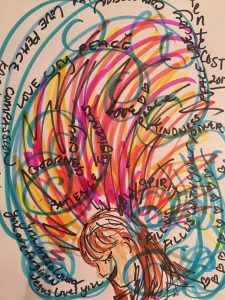
In these days following Pentecost, let the Spirit fill you with love and freedom to dance again! Let the Spirit BREATHE into you again! Accept the Invitation to Dance with Jesus!
The Valley of Dry Bones Ezekiel 37: 1-5
The hand of the Lord was on me, and he brought me out by the Spirit of the Lord and set me in the middle of a valley; it was full of bones. 2 He led me back and forth among them, and I saw a great many bones on the floor of the valley, bones that were very dry. 3 He asked me, “Son of man, can these bones live?”
I said, “Sovereign Lord, you alone know.”
4 Then he said to me, “Prophesy to these bones and say to them, ‘Dry bones, hear the word of the Lord! 5 This is what the Sovereign Lord says to these bones: I will make breath[a] enter you, and you will come to life. 6 I will attach tendons to you and make flesh come upon you and cover you with skin; I will put breath in you, and you will come to life. Then you will know that I am the Lord.’”
LISTEN to Jon Batiste’s Song Freedom and practice your Dancing! and receive the Freedom and Love of Jesus!
As an Amazon Associate, I receive a small amount for purchases made through appropriate links.
Thank you for supporting Godspace in this way.
When referencing or quoting Godspace Light, please be sure to include the Author (Christine Sine unless otherwise noted), the Title of the article or resource, the Source link where appropriate, and ©Godspacelight.com. Thank you!

